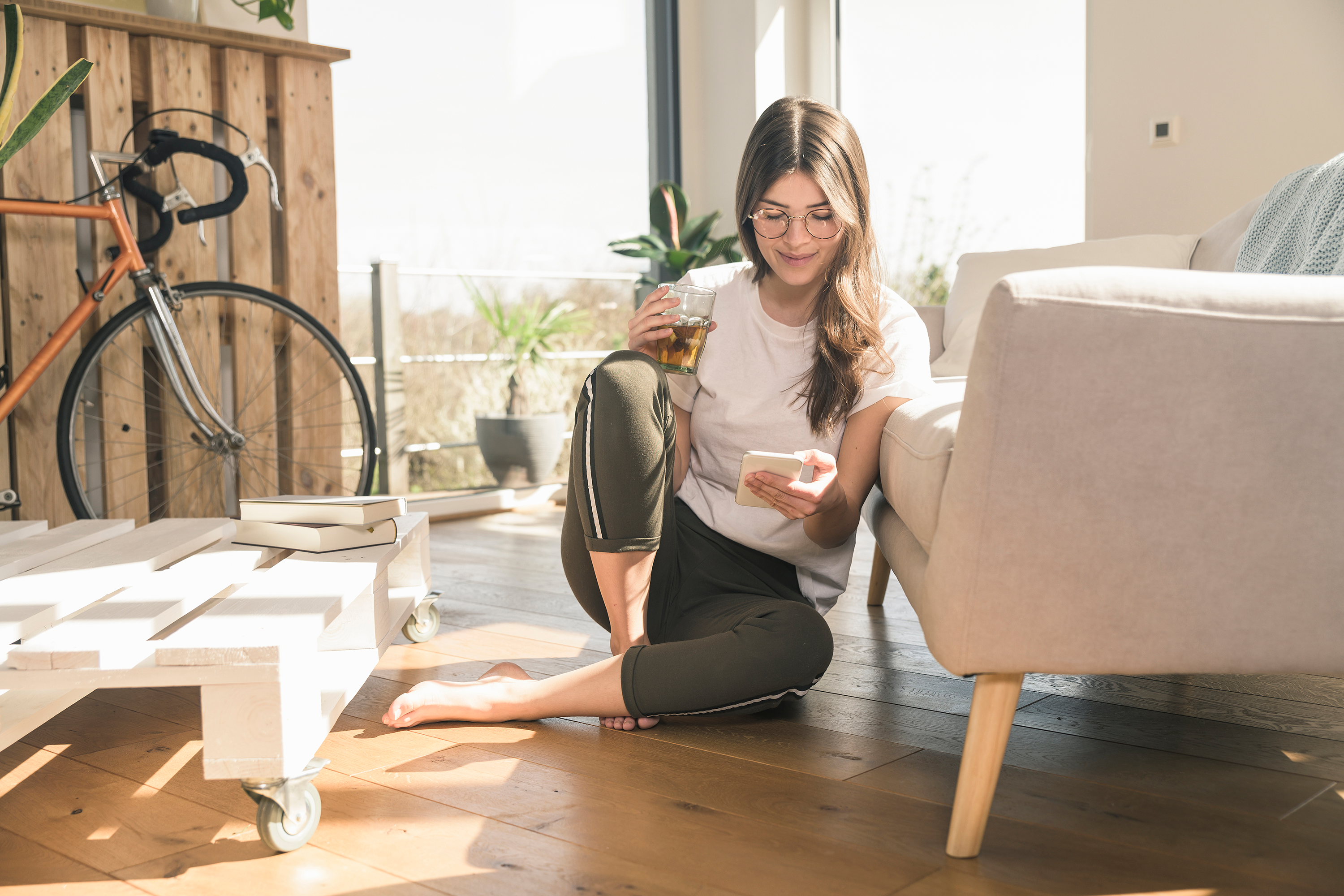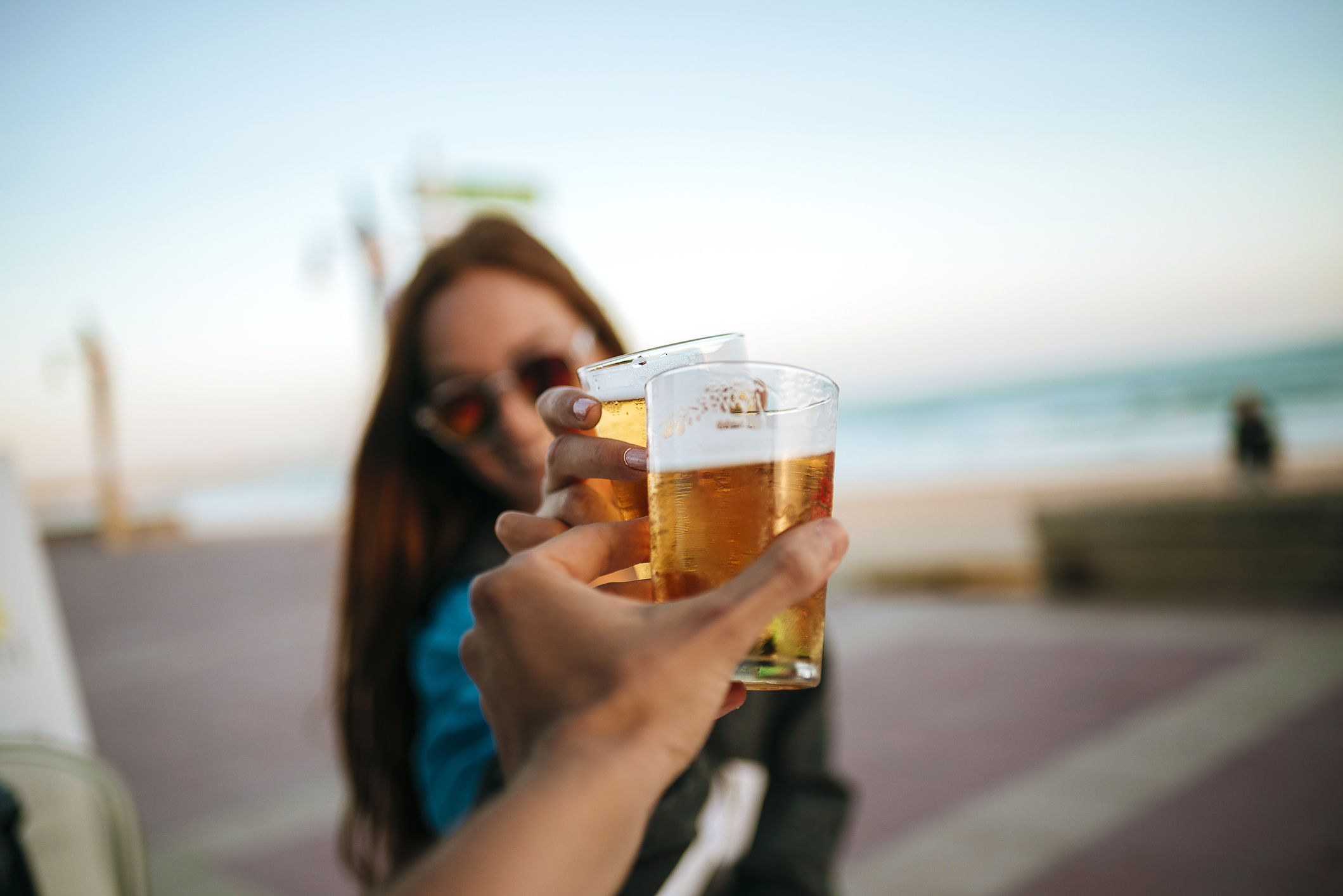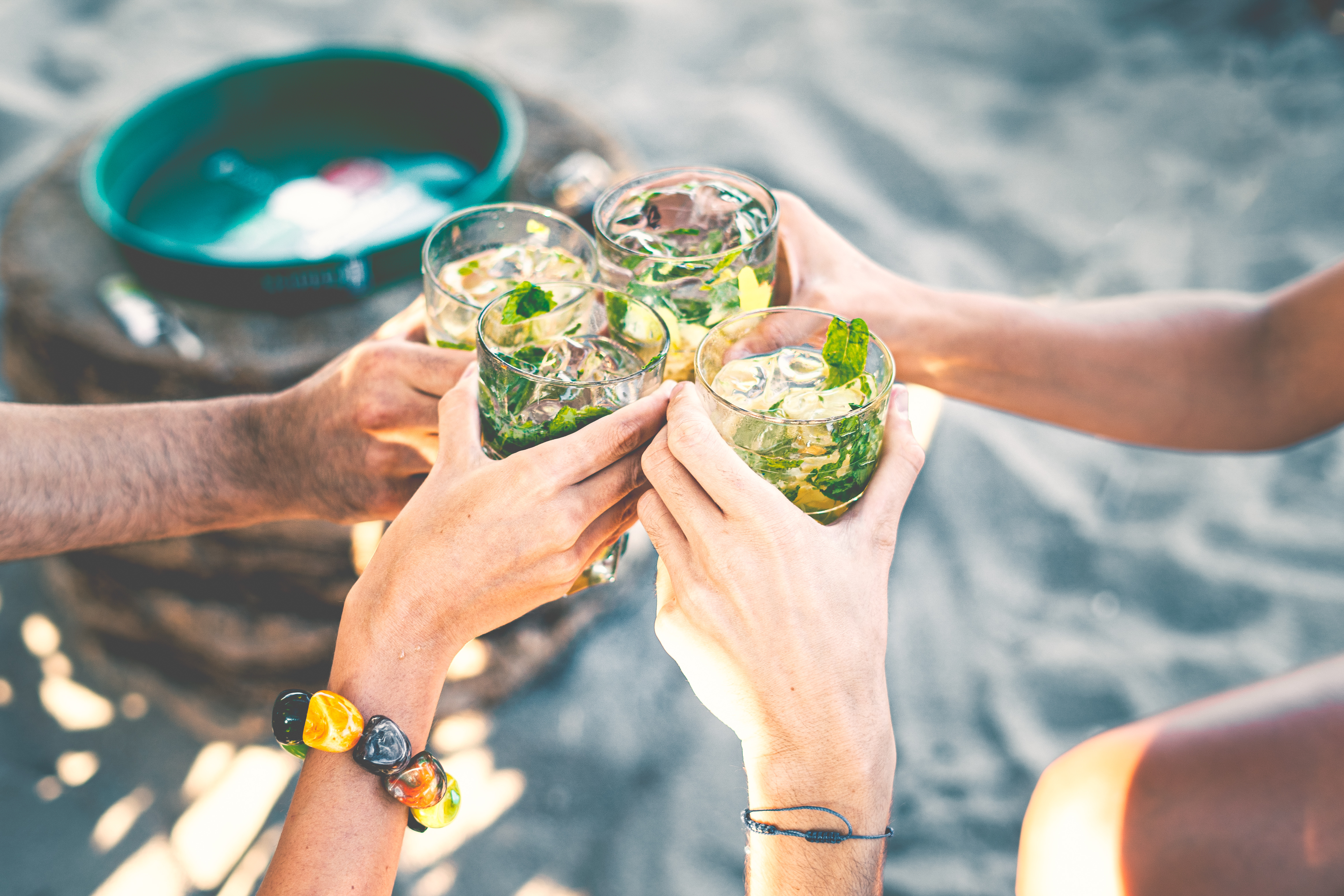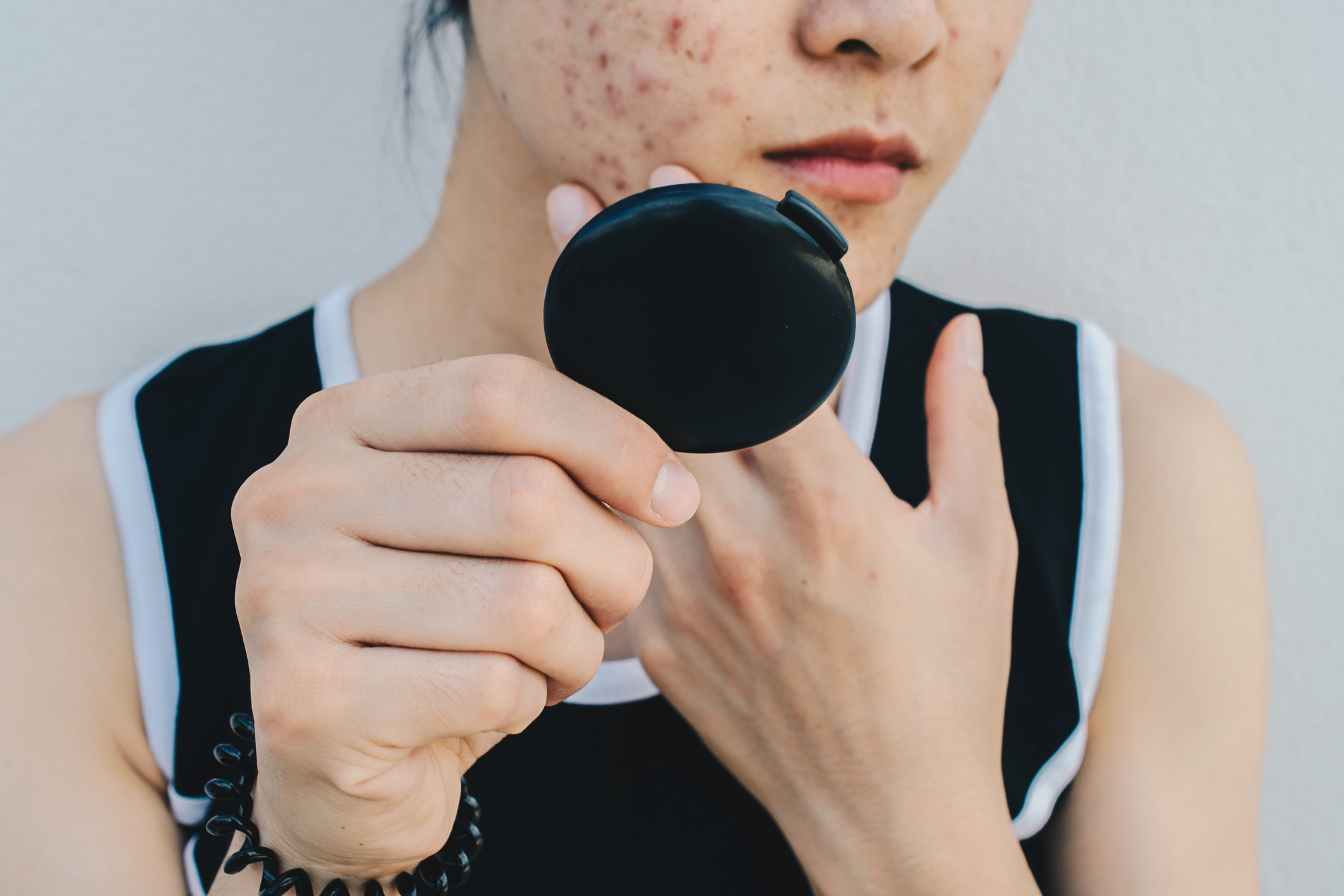The health benefits of alcohol: Can booze really be good for you?
Hurrah! Your favourite drink might not be so bad for you after all.


Parenting advice, hot topics, best buys and family finance tips delivered straight to your inbox.
You are now subscribed
Your newsletter sign-up was successful
Over the last few years, we've all read about how some types of alcohol have major health benefits.
Gin is a natural remedy for hay fever, beer can help your heart function better and lower cholesterol. Red wine is good for you because it contains powerful antioxidants - despite the popularity of non-alcoholic wine. The list goes on and on. And while we all want to be told that our weekend tipple is actually having a positive effect on our health rather than an overwhelmingly negative one, the increasing numbers of people giving up alcohol for health purposes would suggest that this isn't necessarily true.
So whether you're after a tipple that won't leave you looking for the best hangover cures the next day or a drink that causes the least amount of damage to your heart. We asked the experts to weigh in on the truth behind the popular health benefits of alcohol.
Are there any health benefits of alcohol?
Most people know, as much as we would like to think otherwise, alcohol is largely not good for us.
Experts all agree that binge drinking is the biggest issue. It comes with the long-term risk of certain cancers, heart failure, stroke and high blood pressure, among other diseases. For women, binge drinking is more than three drinks on one day or more than seven drinks a week. Or for men (younger than 65), this is more than four drinks a day. Or more than 14 drinks a week.
But there's certainly no harm in having a couple of drinks, Claire says, if you also live a healthy lifestyle. But will alcohol ever improve your life expectancy, cut the risks of developing heart disease substantially? Cure acne and get rid of your allergies? No, definitely not. Even the so-called 'good' properties in alcohol are so little in the final product that they could never win out against the negative effects of the ethanol.
There are some properties in certain types of alcohol that make it better than others, though. For example, gin and vodka have fewer histamines in them than beer or cider. This makes them a great alternative for hay fever sufferers - but they're not going to fix the problem itself.
Parenting advice, hot topics, best buys and family finance tips delivered straight to your inbox.
We've asked the experts to give the low-down on the other typical "health benefits" of alcohol. Hannah Braye is a nutritional therapist at Bio Kult. Leyla Moudden is a naturopath and the director of education at Enzymedica UK. And Claire Murphy is a registered dietician and nutrition at Last Verdict.
Can alcohol lower the risk of heart issues?
The claim: Some studies suggest that moderate drinking has a possible link to a lower risk of heart disease. This claim largely comes from a joint study from the University of Cambridge and University College London. They found that those with consistent drinking patterns might benefit from cardio-protective effects, reducing the risk of heart and circulatory issues, such as angina, heart attacks, heart failure, or strokes.
What the experts say: Leyla says, "The compound resveratrol found in wine has an affinity for the heart system of the body and seems to have a protective effect on heart muscle. Resveratrol may also have a LDL cholesterol and inflammation lowering effect, which means less likelihood of blood clotting."

"The links are not set in stone," she says. "Different studies will have different results based on the dose and quality of resveratrol used. In studies on the benefits of resveratrol on heart health, extremely potent versions of resveratrol are used. These cannot be compared to the amount found in a glass of red wine.
"Red wine alone, with no other changes, is more likely to increase the chances of chronic disease. This is because you would be consuming more negatives than positives. Like all good things, moderation is key."
Also, the Cambridge study found that the positive effect was given to people who drank moderately in a consistent way. Not people who had unstable drinking patterns. So to benefit from the effects you should space out your alcohol consumption across a week, rather than ‘save up’ your units for the weekend and bingeing in one go.
Can alcohol help you live longer?
The claim: Studies have found that women who drink a glass of wine every day have a lower risk of all-cause mortality than those who drink alcohol less frequently.
A study from the American College of Cardiology found that a glass of wine each day could reduce your risk of developing diseases and illnesses by 25 per cent. Further studies have also found drinking moderate amounts of gin also has many health benefits, which also can also help you live longer.
What the experts say: As with most things in life, the evidence on this isn't black and white. Alcohol, in many ways, has been proven to shorten your life span with the risks it comes with. Binge drinking over a long period of time has been associated with liver cancer, cirrhosis and other illnesses.

Hannah explains, "Moderation appears to be key as many studies indicate that moderate intake (up to 1 drink a day), is actually associated with a lower risk of conditions such as hypertension, cardiovascular disease, gallstones, cognitive decline, and all-cause mortality."
She adds, "Preferred alcohol-type has also been shown to affect health outcomes. Wine in particular has been identified as perhaps the most beneficial alcohol choice, since rates of cardiovascular disease and/or related deaths and cancer appear to be lowest for wine drinkers compared to those who drink beer or spirits. However, wine drinkers have also been shown to have generally healthier lifestyles and socio-economic status, which may also play a role.
Can alcohol cure hay fever?
The claim: For years, the ability to diminish symptoms of hay fever has been one of the supposed benefits of drinking gin.
Why? Asthma UK says that switching to gin in the summer could help soothe coughs and sneezes. This is because drinks like cider and have a higher histamine content because of their unique fermentation process. So, by opting for spirits like gin, you can curb these symptoms - in a roundabout way.
The organisation confirm that it's certainly not a magic cure for the allergy - but every little helps.
What the experts say:
While there's some credit to the histamine claim, this is largely false, explains Claire.
She says, "There are no magic foods that will cure hay fever or allergies, so I always find it very confusing when some foods and drinks are promoted as such. There are foods that are more likely to trigger your allergies. So in a way, there are those that are better suited at providing less of a negative reaction.
"The reason for these negative effects is histamines, which red wine is full of. Clear spirits like vodka and gin are less likely to trigger a negative response to hay fever as they contain lower histamine levels. So, if you're looking for less of a trigger to hay fever with your alcohol, stick to the gin and tonics in the summer months."
She adds, "Although, you would also do well to remember that histamines are found in many food products too, from vinegar to chocolate. So keep a look out for pub snacks you consume while drinking."

Alcohol can prevent kidney stones
The claim: According to one study, moderate drinkers are less likely to get kidney stones. 41% less likely in fact, for those who drink beer, and up to 33% less likely for those who prefer wine. The researchers pointed to the fact that alcohol acts as a diuretic, meaning it makes you want to urinate more often. This helps to remove the crystals in your kidneys that can turn into kidney stones.
What the experts say:
Reviews are mixed on this one as there's only actually this one study which associates a decreased risk of nephrolithiasis (the process of crystallisation) with alcohol consumption. This was the conclusion of a review that took 4921 studies into account. While other lifestyle habits, especially smoking, were proven to have a significantly stronger link with kidney stone formation, not too many conclusions could be made about alcohol.
So it's largely a no on this one, our experts say, as the evidence to suggest that alcohol prevents kidney stones is underwhelming. And there is plenty of evidence to suggest that long-term, heavy alcohol drinking damages the kidneys. Over time, it can increase someone's risk from chronic kidney diseases as it promotes high blood pressure, insulin resistance, diabetes and excess urid acid in the blood.
Alcohol has no impact on productivity levels
The claim: Students worldwide will attest that having a couple of drinks before an essay helps them think and get the work done. But others also argue that their productivity isn't affected by alcohol the following day when the hangover hits.
What the experts say:
Naturally, if you go hard on the tequilas and have an early start the next day, it's not going to be good for your productivity levels. But some studies have suggested that drinking alcohol, smoking and over-eating all have zero affect on productivity and actually. But other factors, especially sleep, play a much bigger role.
For instance, a 2015 study by the University of Cambridge found that people were less productive than usual at work if they had less than seven hours sleep per night. Seven to eight hours were optimal, researchers found, as anyone who had less than six struggled with their productivity levels. They also found that out of the 21,000 men and women in the study, those with the lowest productivity levels also suffered with mental health issues, financial concerns and didn't exercise. The amount of alcohol they drunk made absolutely no difference to their work rate.
However, another study found that almost one in five 18 to 34 year-olds admitted to going to work hungover and it caused them to less productive on "at least 30 occasions in the past 12 months". The numbers also don't lie, with alcohol-related sick days costing employers probably more than £1.7 billion in 2016.
As our experts point out, everybody's body processes alcohol differently and there are so many factors at play. Some people will be able to still get work done after drinking the night before, but others will struggle through the day.

Red wine contains powerful antioxidants
The claim: Talking about the health benefits of red wine, red wine contains a powerful heart-healthy, anti-cancer and anti-ageing antioxidant called resveratrol. It's also believed that this antioxidant helps to protect the skin against UV damage.
What the experts say: "The beneficial health effects of regular moderate consumption of red wine are likely due to the polyphenol content," Hannah says.
"These polyphenols act as antioxidants, preventing cellular damage and counteracting the pro-oxidant effect of ethanol. Beverages that have low concentrations of phenolic compounds, such as white wine, beer, or spirits on the other hand, are more likely to have unbeneficial pro-oxidant effects. The polyphenols found in red wine may also have a beneficial effect of our gut bacteria. Studies have found moderate consumption of red wine to increase levels of beneficial bifidobacteria and Lactobacillus species and butyrate-producing bacteria (which protect against leaky gut) at the expense of less desirable groups of bacteria, which produce more endotoxins."
As always though, moderation is key. She adds, "Interestingly, evidence suggests that eating a diet high in fibre and taking a live bacteria supplement, such as Bio-Kult Advanced Multi-Strain Formulation may offer some protection to gut bacteria and the liver from excess alcohol consumption."
Alcohol can help prevent diabetes
The claim: Men who drink alcohol occasionally "appear to reduce their risk of developing type 2 diabetes". This is "by increasing their alcohol consumption to about one to two servings a day of beer, wine or liquor", a study from Harvard University and scientists from the Netherlands claims.
“Changes in one’s alcohol consumption pattern over time have a subsequent influence on one’s type 2 diabetes risk,” said lead author Michel Joosten. “Occasional drinkers who increase their intake to moderate levels – say one to two drinks a day — reduce their type 2 diabetes risk."
What the experts say:
Claire says, "Moderate and healthy consumption of alcohol is a balancing act. You’ll see facts and figures batted around from the same websites and newspapers. They claim that red wine is both bad AND good for you. The truth is, it’s all about the levels of alcohol you consume. The optimal level is around 1 to 2 glasses per day."
She says, "If you’re worried about drinking too much, or the negative effects of alcohol, then it’s important to know what all its health benefits can be found in other, less complicated foods."

And importantly, it has to be moderate drinking. Not binge drinking. "Moderate drinking can lessen your changes of strokes and diabetes," she says. "Drinks such as red wine are jam packed full of antitoxins such as polyphenols, which provides blood vessels in your body with more protection."
The experts on the Harvard University trial said that there were other factors at play too. If moderate drinkers lower their alcohol intake over time, their risk of type 2 diabetes increases. It's then just as prevalent as the occasional drinkers. There wasn't any risk reduction when the men had more than two drinks a day. This suggests that moderation is key here.
Alcohol can improve your sex drive
The claim: For generations, people have given alcohol the credit for boosting their sex lives. The two most common claims are that it lowers inhibitions and increases arousal. Those involved are more "up for it" andrelaxed than they would have been while sober, many think.
Researchers have well-documented the aphrodisiac effect of alcohol with evidence on both male and female responses. But with concerns over core issues like consent, it's important to know about alcohol consumption impacts sex.
What the experts say:
Anyone who's had issues in the bedroom following a boozy date night will know that this just isn't the case. A drink or two may boost arousal in both men and women, studies suggest, but it's certainly not a guarantee.
Drinking alcohol does increase testosterone levels in women, a hormone which plays a role in sexual desire. But alcohol also has a negative effect physically as it reduces genital response, meaning it's less likely women will naturally lubricate and less likely they'll be able to reach orgasm after drinking.
Similarly, men who have a modest amount of drinks are likely to experience an uptick in sexual desire. But when it comes down to it, more than this could seriously impact performance. Common complaints include struggling to maintain an erection, erectile dysfunction and delayed ejaculation, according to the Mayo Clinic.
And naturally, being drunk makes it harder for men and women to give verbal and non-verbal consent. No sexual activity should happen at all if either person is unable to give enthusiastic consent to the activity. Otherwise this is legally assault or rape.
Alcohol doesn't cause acne and other skin conditions
The claim: Scientists haven't found a direct link between alcohol consumption and acne. They've also found that alcohol doesn't directly worsen the condition. As a result, many people believe that alcohol consumption doesn't have any impact on the skin's condition.
What the experts say: Alcohol certainly has a huge impact on your skin. It's not one of the health benefits of alcohol.
If you suffer with acne, the general consensus is to limit how much alcohol you drink. One of the major reasons for this is because alcohol makes you dehydrated. This causes huge problems in the body and eventually leads to breakouts of acne. Research suggests this is because dehydration causes the sebaceous glads in the skin to create excess oil, which in turn leads to oily skin and breakouts as a result.
But Leyla also points to the mountains of evidence that suggest alcohol has a negative effect on the skin in general, not just when it comes to acne. In the short term, it makes skin dry, dull and it enlarges pores. In the long term, overconsumption of alcohol leads to a loss of elasticity in the skin. This creates wrinkles and sagging skin.

Can alcohol improve cognitive function?
The claim: A study from the University of Exeter found that those who drank after studying performed better at recalling new information.
It’s thought that alcohol consumption can improve brain power, including memory and cognitive function, as alcohol causes the hippocampus (the part of the brain associated with memory) to transfer new information to long-term information, heightening the chances of us logging something new. ‘It is also why we often reveal embarrassing stories about ourselves when we’ve had a drink!’ says Sarah.
What the experts say: While a raging hangover (for which there are very few cures) is certainly not one of the health benefits of alcohol, some types of alcohol can improve your memory.
Red wine, for instance, contains resveratrol which protects cells in our brains. So, Leyla says, "Any compound that protects cells will improve all function - including brain function."
Also, she says, as red wine can provide an amount of resveratrol in the diet. This is especially useful if the person is not eating other sources of the compound, like grapes and berries. But once again, the benefits of the compound in red wine have to be balanced out. Alcohol certainly has a damaging effect.

Grace Walsh is a health and wellbeing writer, working across the subjects of family, relationships, and LGBT topics, as well as sleep and mental health. A digital journalist with over six years experience as a writer and editor for UK publications, Grace is currently Health Editor for womanandhome.com and has also worked with Cosmopolitan, Red, The i Paper, GoodtoKnow, and more. After graduating from the University of Warwick, she started her career writing about the complexities of sex and relationships, before combining personal hobbies with professional and writing about fitness.